- Learning time
- 30 minutes
- First play time
- 90 minutes
Polynesia
Designed by: Peer Sylvester
The volcano is trembling and it’s time to make an exit. As leaders of your tribe in Polynesia, you must lead your people to safety, building boats to escape to islands beyond the volcano’s reach. But inevitably, there are others trying to make a similar escape…
The board shows the mainland, volcano and beach, and beyond it the sea with it’s many isles and connecting routes. Broadly speaking, your goal is to move as many of your tribe from the volcano as possible, and in each round you get three turns. The turns have a descending value of 3, 2, and then 1, so different actions make sense at different times. In the opening turn of ‘3’ moving your people makes sense, as you get three movements, whereas building a boat costs you either three fish or three shells. By the time you get to the third turn, you only have a value of ‘1’ so movement is restricted, whereas boat-building is now cheaper!
Once you’ve built a boat, you can move your people along the route it occupies. What’s more, players can use each other’s boats, but the catch is doing so means you must take one of their people with you as a guide. Thus, having your people hanging around near their own boats by busy routes can mean free movement for them… Multiple boats can occupy each route as well, although it can get expensive: building a boat on an occupied route means paying the existing boat owners more fish or shells. Note too that many of the various islands have rewards: tokens that mean points or a one-off special abilities, or fish or shell symbols that mean any occupying people get to harvest the matching resource at the end of each round.
Also at the end of each round: a cube is drawn from a bag determining how close the volcano is the blowing up. Grey cubes do nothing. The solitary black cube prompts an immediate double draw. But the sixth red cube will end the game. Before then, you’ll want to get your people off the mainland and to the most rewarding destinations: each game of Polynesia offers different ways of scoring points, with, for instance, bonus points for being on archipelagos. This extra (but not hard to remember) game by game dynamic means it’s not necessarily the most efficient rescuer who wins, but the canniest player!
The guru's verdict
-
Take That!
Take That!
It's far from the games' dominant feature, despite a shared space and a reasonable amount of interaction. Certainly there's room for the odd bit of spiciness, though.
-
Fidget Factor!
Fidget Factor!
Once you're up to speed, it's all pretty straightforward on the rules. But the game does not play itself, with decisions both dynamic and, occasionally, difficult.
-
Brain Burn!
Brain Burn!
Light on the rules, Polynesia's real challenge is how best to navigate your path both from the island, around (or with) opponents, and to victory
-
Again Again!
Again Again!
The main board set-up is always the same but both the distinct cards (three for each visit) and player decisions keep the experience feeling fresh.


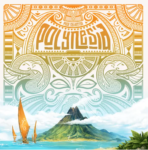

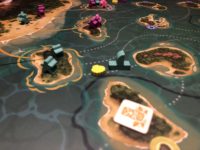

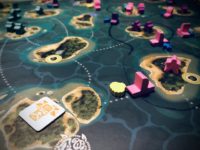


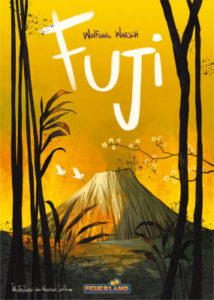
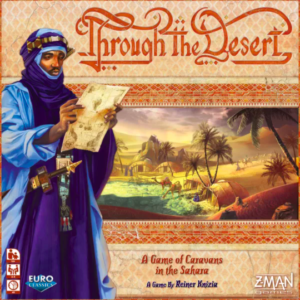
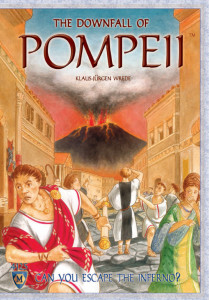
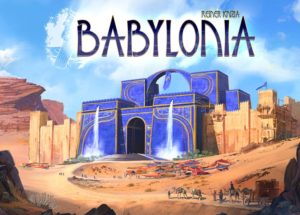
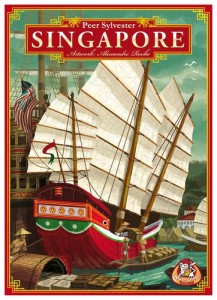
Sam says
Probably more a two-star complexity than a three once you know it, Polynesia is a game suitable for all ages, with light-ish rules presenting difficult decisions and player dynamics on the board both interesting and interactive. I'm a fan of Peer Sylvester's games generally, and Polynesia is probably my favourite; it looks great out on the table and steers a neat line between simple accessibility, tricky decisions, and feisty fun.